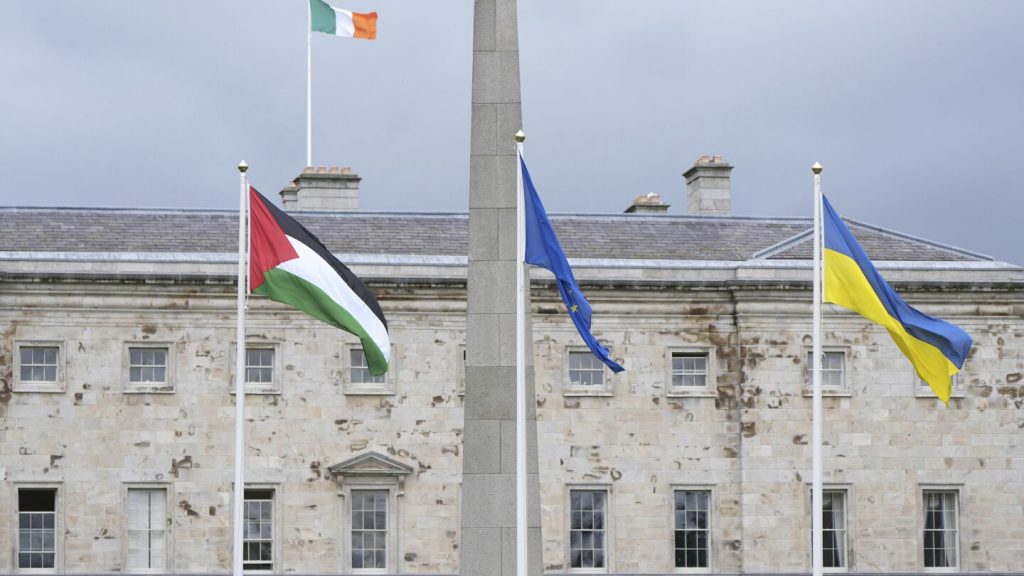Spain, Ireland, and Norway have officially recognized a Palestinian state, a move that reflects international outrage over civilian deaths and the humanitarian crisis in the Gaza Strip following Israel’s offensive. This decision by two EU countries and Norway, known for its strong diplomatic tradition in peacemaking, may encourage other EU countries to follow suit and could lead to further steps at the United Nations, increasing Israel’s isolation. Currently, seven out of the 27 EU member countries have formally recognized a Palestinian state, with five former Soviet bloc nations, Cyprus, and Sweden doing so in 1988. The Czech Republic, an EU member, argues that the 1988 recognition by the former Czechoslovakia does not apply to the modern state, while Slovakia confirmed mutual recognition with Palestine in 1992-93.
The EU member Slovenia is also considering recognizing a Palestinian state, with Prime Minister Robert Golob stating that a decision will be made Thursday and sent to parliament for final approval. Around 140 out of roughly 190 countries represented in the UN have already recognized a Palestinian state, highlighting widespread global support for Palestinian aspirations. The move by Spain, Ireland, and Norway could be significant in pushing for further recognition and enhancing the Palestinians’ international standing. The symbolic gesture puts pressure on Israel to engage in negotiations and brings the Middle East issue to the forefront ahead of European Parliament elections in June.
The conflict between Israel and Hamas has heightened diplomatic pressure, leading to the recent moves by Spain, Ireland, and Norway to recognize a Palestinian state. The UN General Assembly’s decision to grant new “rights and privileges” to Palestine in May was another indication of growing international support for the Palestinian cause. The leaders of the mentioned countries see their recognition as a positive step towards peace and have emphasized the importance of helping Israelis and Palestinians achieve a peaceful resolution to the conflict. Norway, in particular, has been a strong advocate for a Palestinian state for over 30 years and sees its official recognition as a milestone in their relationship with Palestine.
While dozens of countries have recognized a Palestinian state, major Western powers have not done so, and the impact of the recent decisions by Spain, Ireland, and Norway remains uncertain. This recognition is a significant achievement for the Palestinians, providing them with international legitimacy in their struggle for statehood. However, little is expected to change on the ground immediately, as peace talks have stalled, and Israel’s current government opposes Palestinian statehood. The move by the three European countries is likely to strengthen the Palestinian position and further complicate the negotiating process.
Israel has strongly condemned the recognition of a Palestinian state by Spain, Ireland, and Norway, with Foreign Minister Israel Katz accusing Spain of “being complicit in inciting genocide against Jews and war crimes.” Israel rejects any international legitimization of the Palestinians and has recalled its ambassadors to the three European countries following their decision. Israel maintains that all issues should be resolved through negotiations and views moves like these as harmful to the peace process. Despite this opposition, over 140 countries have recognized a Palestinian state, demonstrating broad international support for Palestinian aspirations.
The recognition of a Palestinian state by Spain, Ireland, and Norway comes at a crucial time when the Israeli-Palestinian conflict remains unresolved, and tensions are high. While some major Western powers have not yet recognized Palestine, there is a growing shift in global sentiment towards supporting Palestinian statehood. The ongoing conflict in the Gaza Strip, coupled with international outrage over civilian casualties, has further fueled the push for Palestinian recognition. As the situation evolves, it is essential to consider the implications of these diplomatic decisions on the peace process and the broader Middle East region.


